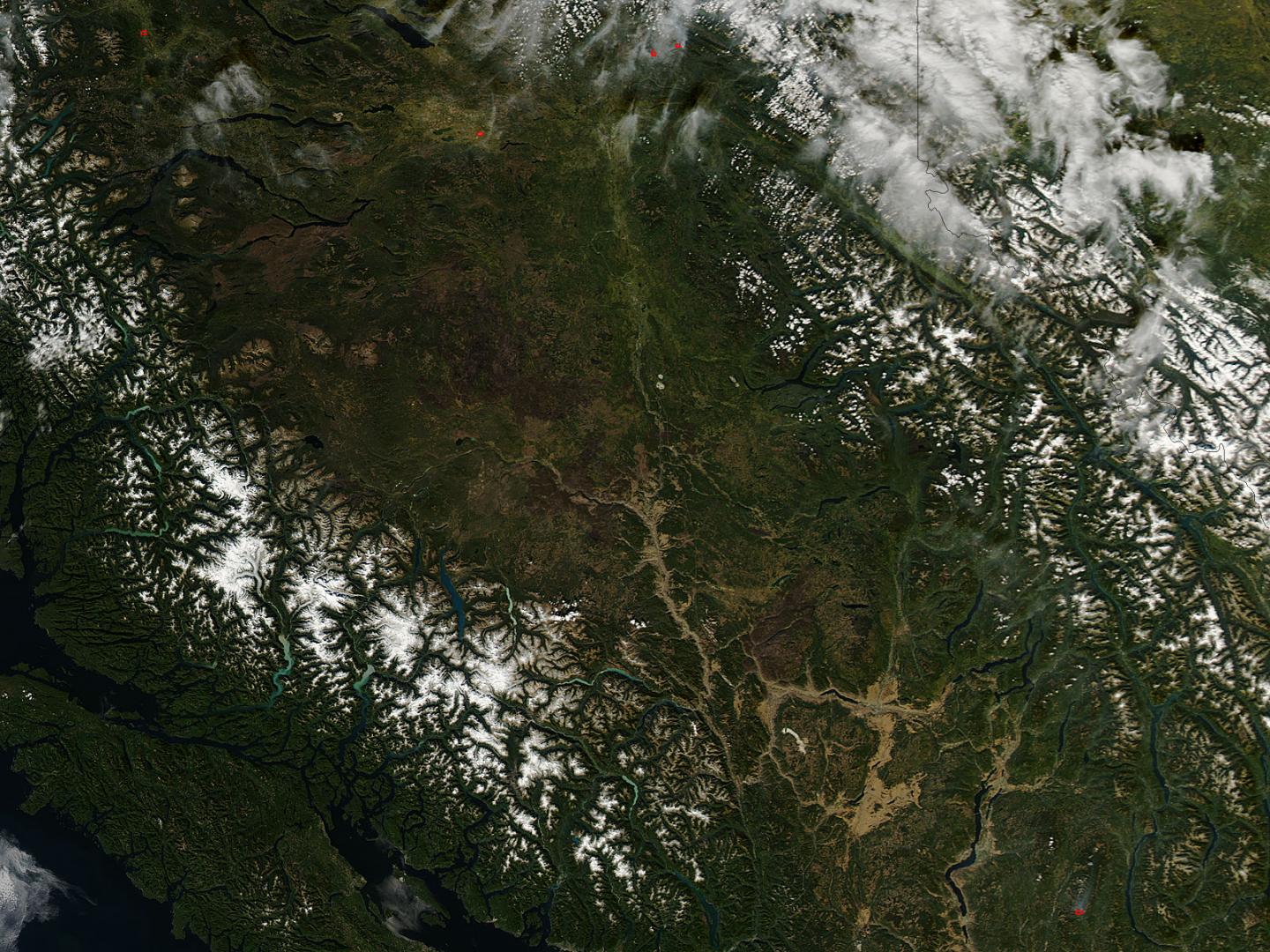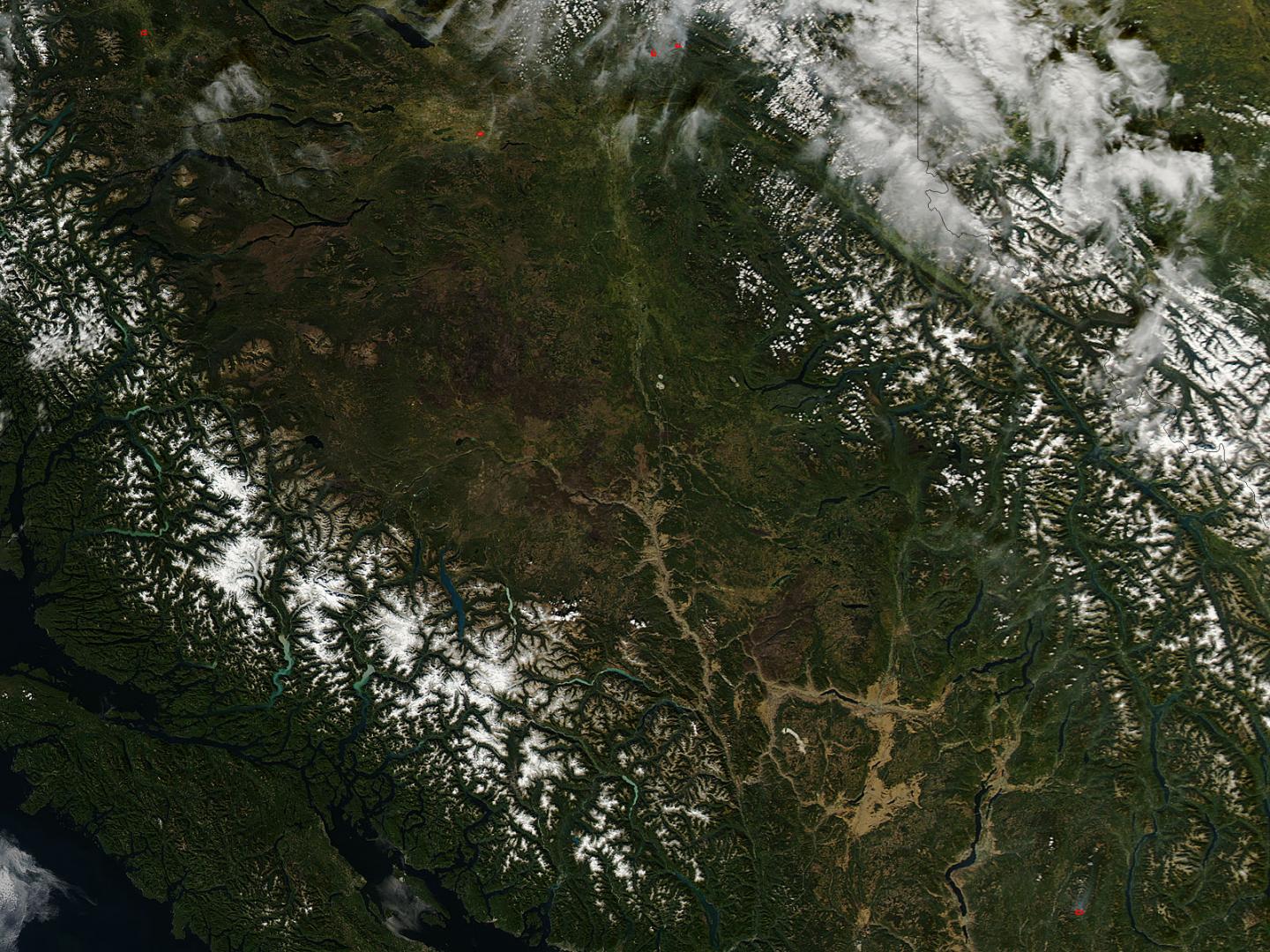
Credit: NASA image courtesy Jeff Schmaltz LANCE/EOSDIS MODIS Rapid Response Team, GSFC
This past summer Canada has been plagued with huge forest fires that have spanned most of the provinces. British Columbia has been particularly hard hit with large portions of the landscape being decimated by fire. In these satellite images taken by the NASA'S Aqua satellite, both the natural color and false color burn scars of left by fires can be seen. In the natural color image it is difficult to make out the burn scars. The false color easily identifies areas where fire has left a scar showing a brownish-red color. Currently there are 745 wildfires larger than 0.01 hectares and all wildfires of note (active or out) in British Columbia as of today, Sept. 29. (Wildfire link updates daily). NASA's Aqua satellite collected this natural-color image with the Moderate Resolution Imaging Spectroradiometer, MODIS, instrument on September 27, 2017.
###
Media Contact
Lynn Jenner
[email protected]
@NASAGoddard
http://www.nasa.gov/goddard
Original Source
https://www.nasa.gov/feature/goddard/2017/burn-scars-in-british-columbia





